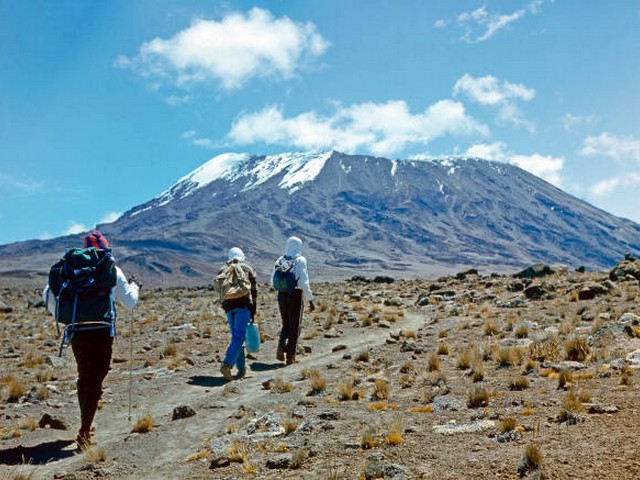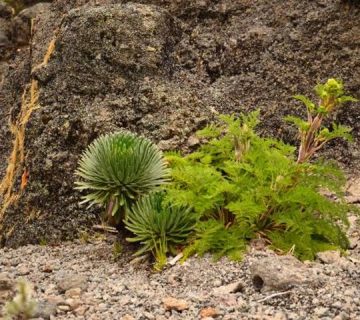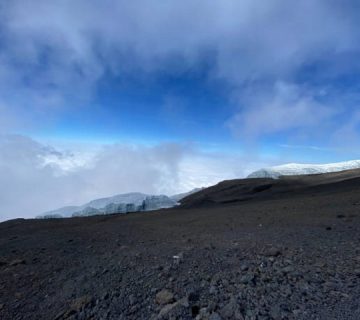Safety Precautions For Elderly Kilimanjaro Trekkers: A Guide to Conquering the Roof of Africa Gracefully
As the morning sun kisses the snow-capped summit of Mount Kilimanjaro, a new day beckons adventurers from around the globe to conquer their dreams and stand atop the highest peak in Africa. But, how does this grand adventure fare for the young at heart, the enthusiastic elderly trekkers yearning to embrace this challenge? At Kilimanjaro Centre for Trekking and Ecotourism (KCTE), we understand the unique concerns and requirements of older adventurers. We're here to guide you through the essential safety precautions for elderly Kilimanjaro trekkers, ensuring a journey that's as safe as it is memorable.
Why Kilimanjaro Appeals to Elderly Adventurers
Kilimanjaro isn't just a mountain; it's a beacon of achievement, a testament to endurance and spirit. For many elderly trekkers, climbing Kilimanjaro is a chance to prove that age is but a number, and adventure knows no bounds. The journey to Uhuru Peak is not only about physical endurance but also about spiritual rejuvenation and personal triumph.
Tailored Preparations for Elderly Trekkers
Health Checks and Consultations
Before even booking your trek, comprehensive health checks are crucial. Consult with healthcare providers about high-altitude trekking and ensure that heart conditions, blood pressure, and respiratory health are assessed. At KCTE, we recommend specific fitness regimes tailored for older adults to prepare them physically for the climb.
Adaptive Training Regimens
Start with gentle, progressive aerobic exercises such as swimming or walking, gradually increasing the intensity to simulate the demands of Kilimanjaro's varied terrains. Strength training, focusing on legs and core, is equally vital to enhance stability and endurance.
Choosing the Right Route and Pace
Route Selection
Kilimanjaro offers several routes, each with distinct characteristics. For elderly trekkers, we recommend the Lemosho or the Rongai route. These paths offer a more gradual ascent, which is vital for acclimatization and reduces the risk of altitude sickness.
Pacing is Key
At KCTE, we stress the importance of a slower pace for elderly climbers. This approach allows for better acclimatization and reduces physical strain. Our expert guides are trained to identify the optimal pace, ensuring that you can enjoy the scenery without undue fatigue.
Essential Gear and Support
High-Quality Gear
Invest in high-quality, durable trekking gear. Essentials include a sturdy pair of hiking boots, thermal clothing, a reliable sleeping bag suitable for sub-zero temperatures, and a comfortable, supportive backpack.
On-Trip Support
We ensure that all KCTE treks are equipped with emergency oxygen, first aid kits, and satellite phones. Our experienced guides and porters are always on hand to provide assistance, ensuring that you feel secure every step of the way.
Health Management on the Mountain
Hydration and Nutrition
Maintaining hydration is crucial, particularly at high altitudes where dehydration occurs more rapidly. We provide ample clean water and balanced meals rich in carbohydrates and proteins to sustain energy levels.
Recognizing Altitude Sickness Symptoms
Altitude sickness is an equalizer; it can affect the fittest of trekkers. Our guides are trained to recognize its symptoms — from mild headaches to more severe signs. Immediate response and treatment are paramount to ensure safety.
Embracing the Journey with Confidence and Joy
Mental Preparation
Climbing Kilimanjaro is as much a mental challenge as a physical one. We encourage trekkers to maintain a positive mindset, fortified by thorough preparation and the support of our dedicated team.
Enjoying Every Moment
From the lush rainforests at the base to the arctic summit, Kilimanjaro is a mosaic of ecological wonders. We inspire our trekkers to engage fully with the environment, embracing every unique landscape and wildlife encounter.
Why Choose KCTE for Your Kilimanjaro Adventure
Choosing the right tour operator is crucial, especially for elderly adventurers. Kilimanjaro Centre for Trekking and Ecotourism (KCTE) is not just a tour operator; we are your partners in adventure. With decades of experience, we specialize in providing tailored, safe, and enriching experiences for elderly trekkers. Our understanding of the mountain's challenges and our commitment to your safety and enjoyment make KCTE the ideal choice for your Kilimanjaro journey.
Conclusion
Conquering Kilimanjaro is an extraordinary feat at any age. For the elderly, it's a profound demonstration of courage, resilience, and the enduring spirit of adventure. With the right preparations, the proper pace, and a dedicated team by your side, the summit is not just a destination but a vibrant journey of self-discovery and achievement. Let Kilimanjaro Centre for Trekking and Ecotourism (KCTE) guide you to the roof of Africa. It's your time to shine on the summit; let's make those dreams a thrilling reality!
Frequently Asked Questions
Q1: What is the best time of year for elderly trekkers to climb Kilimanjaro?
The best times are during the dry seasons, January to mid-March and June to October. These months offer the most stable weather conditions, making the climb safer and more enjoyable.
Q2: How long does it take to climb Kilimanjaro for elderly trekkers?
We recommend opting for longer itineraries, typically 8 to 9 days, allowing more time for acclimatization and reducing daily physical strain.
Q3: Are there medical checks during the climb?
Yes, our guides conduct daily health checks to monitor the well-being of all trekkers, with particular attention to older climbers.
Q4: Can dietary restrictions be accommodated on the trek?
Absolutely, KCTE caters to various dietary needs. Inform us in advance, and we will ensure your nutritional requirements are met throughout your journey.
Ready to embark on your Kilimanjaro adventure? Contact Kilimanjaro Centre for Trekking and Ecotourism (KCTE) today, and let us help you achieve your mountaineering dreams with safety, comfort, and exhilaration.




